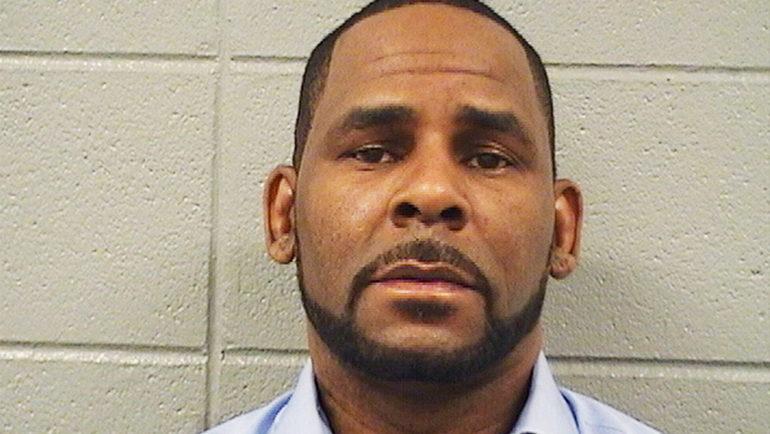‘Surviving R. Kelly Part II’ Preview, Panel Discussion Look at Past Year, Series’ Impact
By Jem Aswad
LOS ANGELES (Variety.com) – It’s hard to imagine that R. Kelly would be in jail today without “ Surviving ,” the Lifetime docuseries that aired just under a year ago and threw decades of sexual-assault and misconduct allegations against the singer into dramatic relief. Just six weeks after the series aired, the singer was arrested on a new set of allegations that were soon joined by more allegations, and now he faces multiple charges in three states , and the possibility of spending the rest of his life in prison.
That it took a dramatically produced docuseries to produce a result that years of investigative reporting and legal action could not is itself a statement about this country and this culture. That is one of the many collateral effects explored in the s econd part of the series, “Surviving R. Kelly Part II: The Reckoning ,” and a panel discussion that immediately followed a media preview in New York on Tuesday night. “Part II” will air on Lifetime Jan. 2-4, 2020, nearly a year to the day after the first installments.
Unlike the screening of “Part I,” Tuesday’s was not postponed by a gun threat , although there was no shortage of strong emotions. The events of the past year — multiple accusers coming forward and outcry increasing until Kelly was arrested three times and finally incarcerated — have provided plenty of material for another docuseries. But what the story is really about is the accusers, the culture and the vicious cycles created by sexual violence. Anyone who’s seen any of the first installment will know what to expect from the second: A chronology of the past year’s events, but also more accusers telling painfully similar and now-familiar stories. It’s horrifying, harrowing and at times hard to watch.
A pattern emerges of Kelly, who himself suffered sexual abuse as a child, recognizing it in young women, exploiting their weakness and positioning himself as a friend and supporter before turning vicious and abusive. A large part of the segments screened on Tuesday focuses on Lanita Carter, Kelly’s former hair stylist, whom he allegedly beat, spit on and sexually abused. She speaks of Kelly’s initial kindness to her and at one point essentially says, through tears, “I wasn’t raped so it wasn’t that bad” — a shocking statement in light of what she alleges Kelly did to her. It also examines the psychology of victims and abusers, and presents almost-comic foils in the form of a pair of blonde twins who’d worked for Kelly and placed the blame on the accusers’ parents, while Kelly’s two brothers speak vividly of the abuse in their upbringings and the effect it had on them. Journalist Jim DeRogatis, who broke the news of the sex tape that led to child-pornography charges against Kelly and has pursued accusations against him for nearly 20 years, says he knows the names of 48 women who accuse the singer of sexual misconduct.
Obviously, “” is about a lot more than R. Kelly, and many of those topics were addressed in a brief panel discussion immediately after the screening, with meToo founder Tarana Burke, series executive producer dream hampton, Lifetime SVP Brie Miranda Bryant, Joanne N. Smith from Girls for Gender Equity and RAINN VP Clara Kim.
Bryant said that when the first series started filming, producers had lined up three accusers and two sets of parents; by the end, they had more than 50 — and more than 70 for Part II. Kim said that RAINN’s call volume increased an unprecedented 20% in the week after the first series aired.
The conversation quickly broadened to the impact of the Kelly tragedies on the black community. “I was so astonished by the level of backlash from black men” about the series, Burke said. “I try to acknowledge the long, horrible history of violence against black men in this country while also acknowledging the history of sexual violence against black women, by white and black men.” One panelist mentioned a sentiment that white predators should take legal priority over black ones. “If we’re going to get to Harvey Weinstein and Jeffrey Epstein first, what do black women do while we wait? What happens to your queens then?,” hampton said. The conversation then addressed those whose defense of Kelly and other abusers like Bill Cosby is based largely if not entirely on race. “Why don’t they just say, ‘This isn’t us’?” hampton said. “Why make that your hill to die on?”
Asked whether she feels the situation has improved in the recent past, Burke said, “I think we’re on a precipice. It’s kind of like cigarette smoking: 20-25 years ago, people were smoking on planes, in hospitals, there were Marlboro Man ads in magazines,” she said of the not-too-distant past. “But then, there was a culture shift — after a series of interventions. I feel like we’re marching in that directions now, but the backlash we have seen is scary.
“I’m hopeful it can happen,” she concluded. “But it clearly has not happened yet.”

